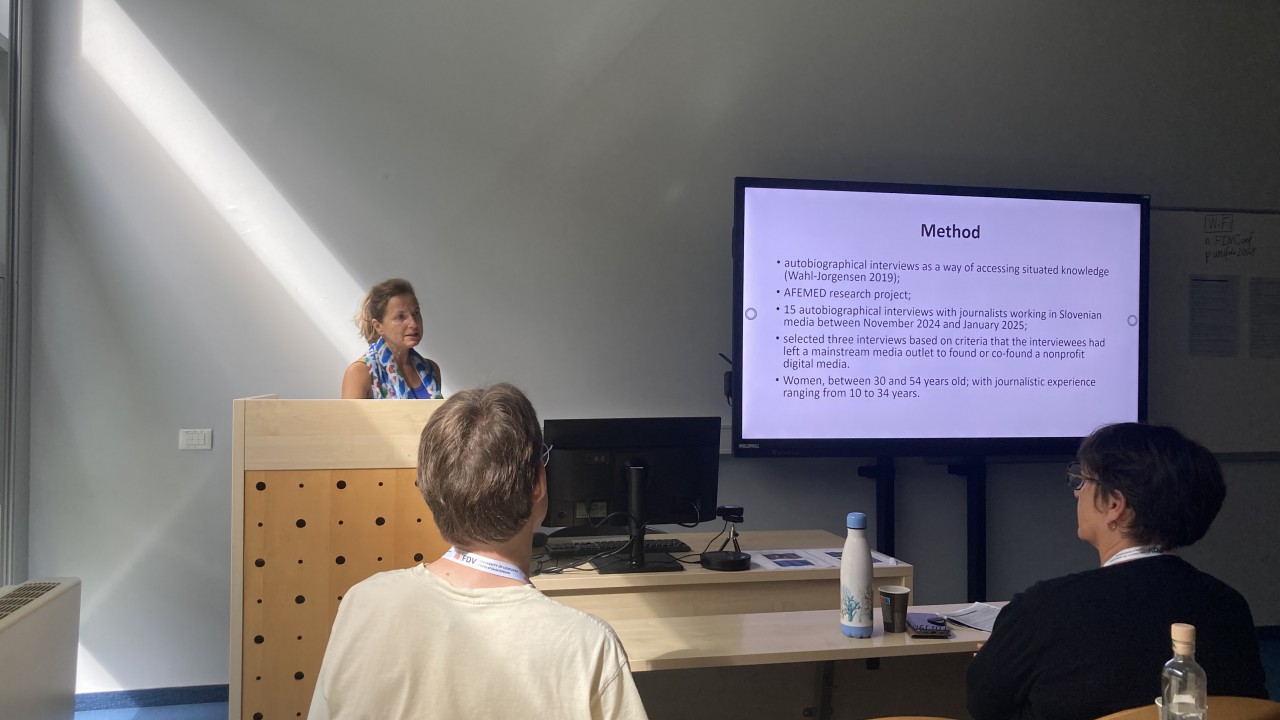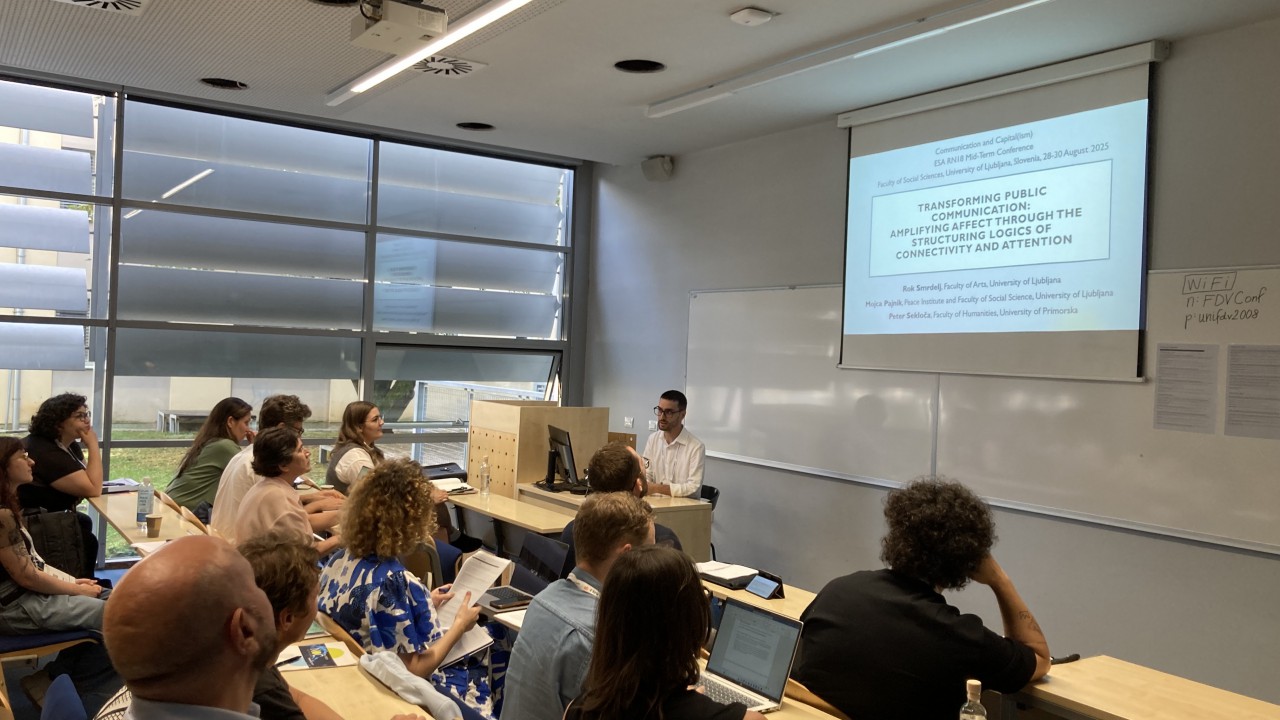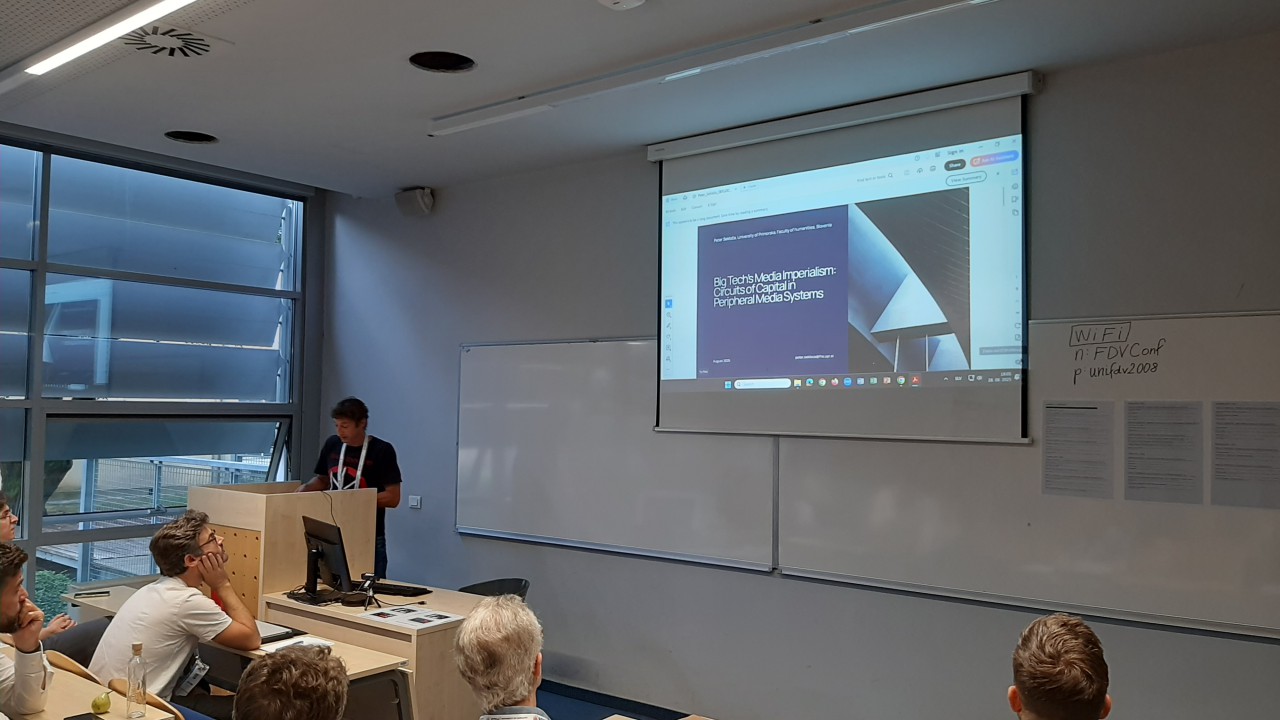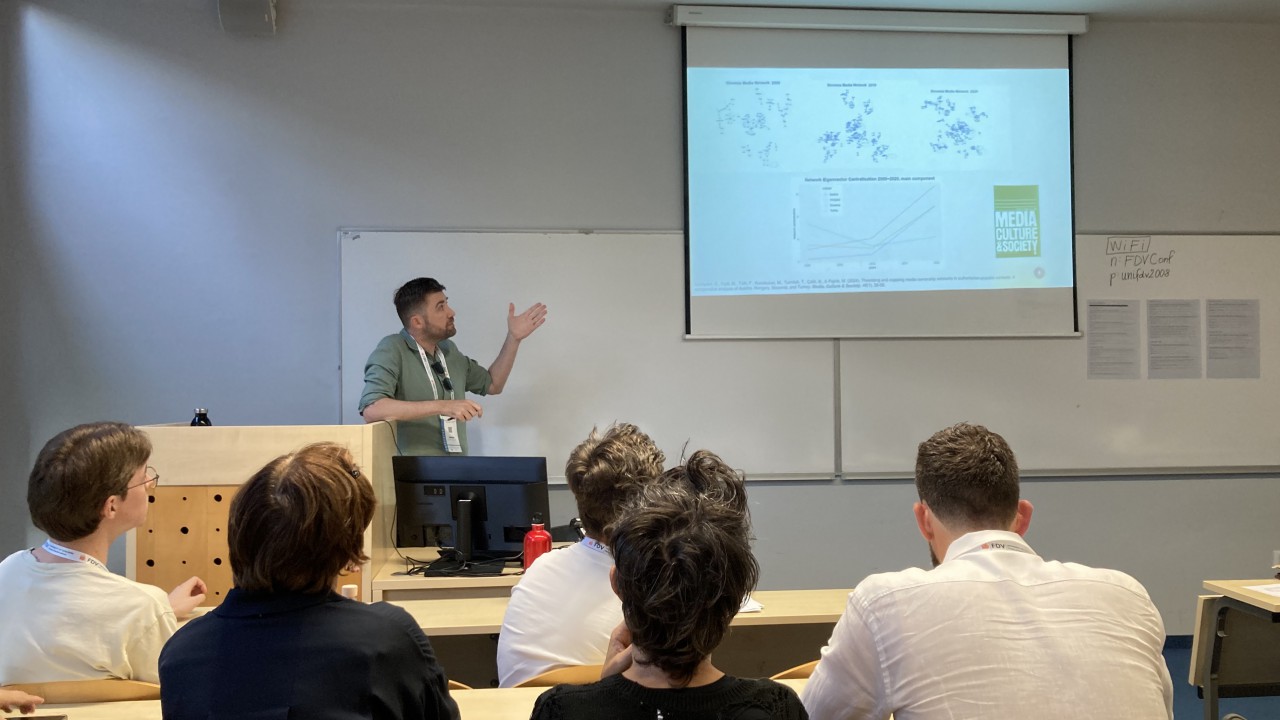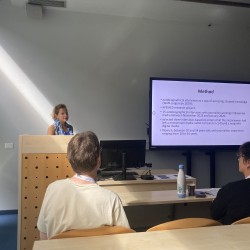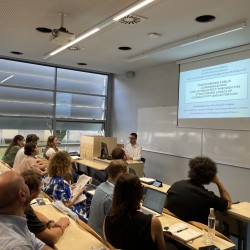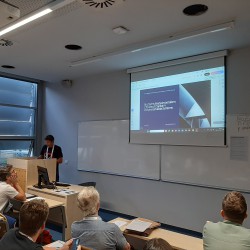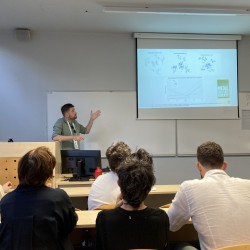Affect and Capitalism
3. 9. 2025 | Media
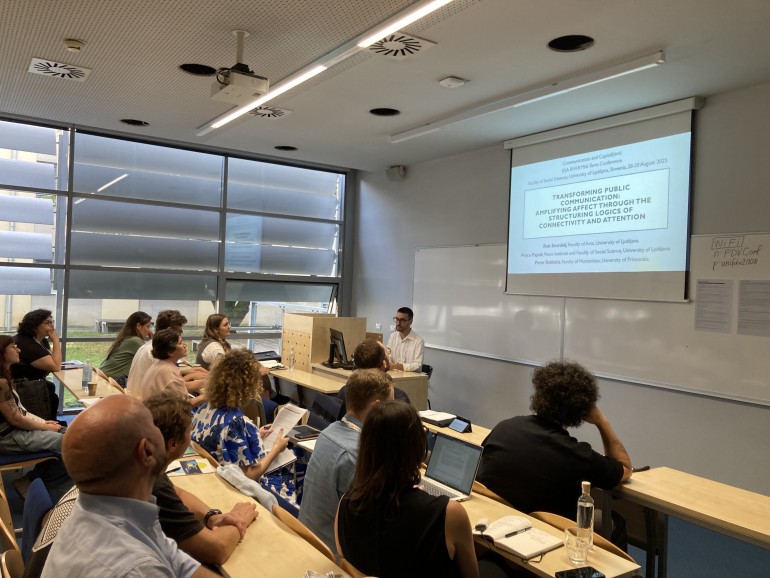
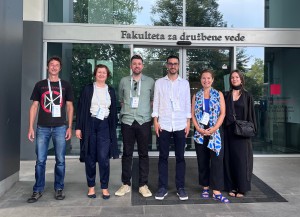 Research group analysing affectivity in the field of journalism as part of the AFEMED project participated at the international conference titled Communication and Capital(ism), held from August 28 to 30 at the Faculty of Social Sciences in Ljubljana. The conference, organized by the European Sociological Association’s Research Network on Communication and Media (ESA-RN18), brought together more than 60 researchers who deliberated on the structural problems, challenges, and transformations of digital capitalism. The members of the AFEMED research group presented their empirical findings collected through various research modules of the project to this large international academic, research, and professional audience.
Research group analysing affectivity in the field of journalism as part of the AFEMED project participated at the international conference titled Communication and Capital(ism), held from August 28 to 30 at the Faculty of Social Sciences in Ljubljana. The conference, organized by the European Sociological Association’s Research Network on Communication and Media (ESA-RN18), brought together more than 60 researchers who deliberated on the structural problems, challenges, and transformations of digital capitalism. The members of the AFEMED research group presented their empirical findings collected through various research modules of the project to this large international academic, research, and professional audience.
Rok Smrdelj (co-authored with Mojca Pajnik and Peter Sekloča), in his presentation titled “Connectivity and Attention as Structuring Logics: The Role of Affect in Reconfiguring Public Communication”, discussed important epistemological foundations that position affect as a structuring principle of contemporary capitalism. He highlighted the concepts of connectivity and attention, placing them at the core of modern capitalism, as they have fundamentally transformed public communication processes within the networked media sphere.
Majda Hrženjak, in her presentation titled “Feeling the Crisis, Building the Alternative: Women Journalists and the Affective Turn in Digital Community Media”, used biographical interviews to reconstruct the key trajectories of women journalists and emphasized their active role in establishing autonomous and independent digital community media. She demonstrated why such journalistic projects are fundamentally personal and political—rejecting the status quo while restoring integrity, autonomy, and the very meaning of journalistic work.
Brankica Petković, in her presentation “Community and Non-Profit Media in Slovenia: Persistent Marginalization in Media Policy and Landscape”, drew on findings from the MeDeMAP project to explain why community and non-profit media remain marginalized and underfunded in Slovenia’s regulatory environment, despite their important deliberative and advocacy roles.
In a co-authored presentation (with M. Pajnik, D. Sen, and L. Šramel Čebular) on the oligarchization of media ownership, Marko Ribać highlighted key trends in media concentration within the Slovenian media system. By comparing data from 2010 and 2022, he presented findings identifying dominant media clusters across four key sectors—including local conglomerates, regional media giants, and politically affiliated media networks. He emphasized their visibility and influence in shaping a concentrated media landscape and capturing audience attention.
Peter Sekloča, in his presentation titled “Big Tech’s Media Imperialism: Circuits of Capital in Peripheral Media Systems”, combined Galtung’s theory of imperialism with extensive empirical and statistical data to classify media organizations and distinguish them from tech giants by comparing their organic capital composition, business models, and income levels.
Maja Breznik, together with Prof. Adele Ladkin, Prof. Kylie Jarrett, and Jernej Kastelic from the Mladi Plus union, unpacked the complex dynamics of digital platforms, which—through algorithmic management and the mediatization of labor—are redefining the nature of employment, workers’ rights, and social dialogue. In the plenary panel discussion titled “UNPACKING PLATFORM POWER”, moderated by Maja Turnšek, the speakers addressed not only the transformation of labor but also the consequences that these changes bring to the “lifeworld” of workers and the broader struggle for social and economic justice.

